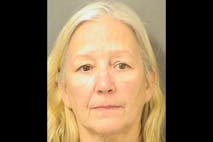
Thousands of South Korea schools close as birth rate plummets
Cassy Cooke
·
Families sue Vermont DCF after it revokes foster care licenses for religious beliefs
Two Vermont couples are suing Vermont’s Department for Children and Families (DCF) after the state revoked their foster care licenses because of their religious beliefs. Alliance Defending Freedom (ADF) is representing both couples, who have each adopted children through foster care but who would not agree to transition hypothetical children experiencing gender dysphoria.
The lawsuit claims that DCF’s policy on sexual orientation, gender identity, and gender expression is unconstitutional and violates the right to religious expression, equal protection, and free speech.
According to a press release from ADF, Pastor Brian Wuoti and his wife Katy have been foster parents for 10 years and have adopted two brothers from foster care. Pastor Bryan Gantt and his wife Rebecca have been foster parents since 2016. They have cared for children born drug-dependent or with fetal alcohol syndrome and have adopted three children. ADF states that each couple has “a track record of success and high praise from social workers who knew them.” Social workers called the Wuotis “amazing” and said they “probably could not hand pick a more wonderful foster family.” They said the Gantts were “the perfect home” and the “first choice” for a baby born to a drug-addicted homeless woman.
However, DCF allegedly revoked its foster care licenses for the families due to their refusal to sign off on DCF’s sexual orientation, gender identity, and gender expression policy.
READ: A conversation with Mrs. Universe on foster care misconceptions and how pro-lifers can help
“The Department recently decided to exclude all families with traditional religious beliefs about human sexuality from fostering or adopting any child,” the lawsuit reads. “This ideological campaign puts politics above people and gender ideology over children’s best interests. It is harmful, unnecessary, and unconstitutional.”
The policy states, “The caregiver’s beliefs and attitude about the child’s sexual or gender identity, as well as the caregiver’s behaviors and actions that may stem from their beliefs or attitude, will be carefully considered when identifying dangers and risks in cases involving LGBTQ youth. Family services workers should consider whether: • The child or youth is fearful of their parent/caregiver or others living in the residence; • The caregiver is verbally hostile when talking to or about the child; • The caregiver has not, will not, or is unable to provide care and supervision necessary to protect the child from harm, including self-harm; or • The caregiver is verbally abusive to the child, ostracizes the child, ridicules, or belittles the child.”
Article continues below
Dear Reader,
In 2026, Live Action is heading straight where the battle is fiercest: college campuses.
We have a bold initiative to establish 100 Live Action campus chapters within the next year, and your partnership will make it a success!
Your support today will help train and equip young leaders, bring Live Action’s educational content into academic environments, host on-campus events and debates, and empower students to challenge the pro-abortion status quo with truth and compassion.
Invest in pro-life grassroots outreach and cultural formation with your TRIPLED year-end gift!
While the policy appears to focus on children who have already expressed an LGBTQ identity or gender dysphoria, DCF has allegedly refused to allow the two couples to foster even if the child is a relative, a newborn, or needs a safe home for just a day.
After DCF sent an email last year stating that families must support a child’s wish to change his or her gender, the Gantts told DCF that they could not ignore their religious beliefs. Likewise, in 2022, the Wuotis told DCF that they could not do or say anything against their religious views on sexuality. DCF revoked the licenses of both couples, despite the shortage of foster homes in the state.
Vermont DCF has had to place some children with unlicensed families, hospitals, and police stations due to the lack of available foster homes, yet it will not place children with licensed parents who have worked with DCF for years.
“Although the Wuotis and Gantts have adopted five children between them, the Department has determined they are unfit to foster or adopt any child solely due to their religiously inspired and widely held belief that girls cannot become boys or vice versa,” states the lawsuit. “Vermont would prefer children have no home than to place them with families of faith with these views.”
In a similar case in 2023, an Oregon woman sued the state after it rejected her adoption application because she would not promise to transition hypothetical children experiencing gender dysphoria.
Live Action News is pro-life news and commentary from a pro-life perspective.
Contact editor@liveaction.org for questions, corrections, or if you are seeking permission to reprint any Live Action News content.
Guest Articles: To submit a guest article to Live Action News, email editor@liveaction.org with an attached Word document of 800-1000 words. Please also attach any photos relevant to your submission if applicable. If your submission is accepted for publication, you will be notified within three weeks. Guest articles are not compensated (see our Open License Agreement). Thank you for your interest in Live Action News!

Cassy Cooke
·
Issues
Bridget Sielicki
·
Issues
Angeline Tan
·
Issues
Nancy Flanders
·
Issues
Wesley J. Smith
·
Issues
Michael J. New
·
Issues
Nancy Flanders
·
Media
Nancy Flanders
·
Issues
Nancy Flanders
·
Activism
Nancy Flanders
·
Issues
Nancy Flanders
·